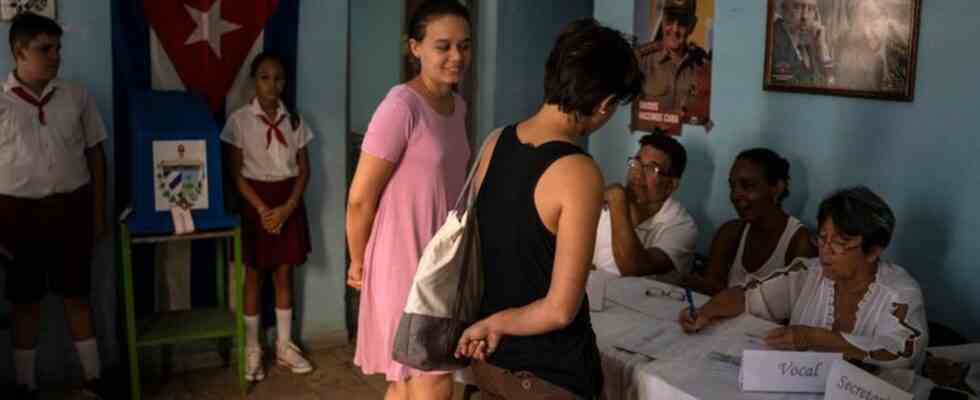poll
Referendum on new law: Cuba gets marriage for all
Citizens in the socialist Caribbean country of Cuba are voting on a new family law that would allow same-sex couples to marry and adopt, among other things. photo
© Ramon Espinosa/AP/dpa
The government of the socialist one-party state issued the motto “Your vote counts” before the referendum. According to her, the population approved the marriage for all by a large majority.
Same-sex marriage is introduced in Cuba after a referendum on a new family law. According to preliminary figures, the Cubans approved a new family law with around two-thirds of the valid votes in Sunday’s vote, the electoral authority of the socialist Caribbean state announced on Monday.
Among other things, the legislative package introduces marriage and adoption for same-sex couples and surrogacy and parenting for non-biological parents, as well as measures to protect the rights of children and the elderly.
“#LoveIsNowLaw,” Cuba’s Presidential Office tweeted. The government had campaigned through state media, rallies and posters to vote on amendments to the 1975 Family Law, which passed parliament after referendums in July. The saying “#Your Voice Counts” was permanently displayed in a corner on television. The moderators repeatedly emphasized that the referendum was historic.
Rare opportunity for participation
In Cuba, citizens rarely have such an opportunity for participation. Parliament is elected, but only the Communist Party is allowed. Most recently, however, the current constitution, which came into force in 2019, was decided by referendum.
Cuba’s Catholic Church had spoken out against the new rights for same-sex couples. Conservative ideas about gender roles are strong in Cuba. In the 1960s, gay men in Cuba were sent to penal camps for “re-education.” However, today’s government – particularly in the person of Mariela Castro, daughter of ex-President Raúl Castro and head of the Center for Sexual Education – takes a progressive stance on LGBTQ rights issues.
Some dissidents had announced on social media that they would abstain or vote “no” regardless of their opinion of the law so as not to allow the government to succeed. Some had speculated that the result was known before the count. The tag “#InOneDictatorshipWillNotElected” was spread on Twitter.
Cuba is suffering from serious economic problems, partly because of the slump in tourism since the beginning of the corona pandemic and because of US sanctions. There is a shortage of food and medicine, and there are many power cuts. On July 11, 2021, what may be the largest anti-government protests since the 1959 revolution broke out in many cities. Hundreds of participants were sentenced to prison terms, some of them long. The island state has been experiencing a large wave of emigration for the past year.

